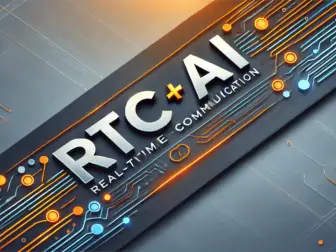Tag - AI
AI and Machine Learning, Blog , December 23, 2024 , AI, automation management, Edge Computing, iot, Machine Learning, Predictive Maintenance, smart maintenance
AI and Machine Learning, Blog , November 6, 2024 , AI, Data Preprocessing, LLM, LLM development, Model Optimization
Blog , March 1, 2024 , AGI Development, AI, ChatGPT, Future of IoT, GPT, OpenAI, Sora
Exploring the Boundless Frontiers of Artificial Intelligence: Impact and Future Prospects
Exploring the Boundless Frontiers of Artificial Intelligence: Impact and Future Prospects
Artificial Intelligence (AI) has rapidly become a cornerstone of the modern technological landscape, transforming industries and altering the fabric of our daily lives. This dynamic field, which once seemed confined to the realm of science fiction, is now a palpable force driving innovation and efficiency across various sectors. AI refers to the simulation of human intelligence in machines that are programmed to think like humans and mimic their actions. The term can also be applied to any machine that exhibits traits associated with a human mind, such as learning and problem-solving.
The applications of AI are vast and growing. In healthcare, AI tools can predict patient diagnoses, personalize treatment plans, and even assist in surgeries, leading to better patient outcomes. In finance, algorithms can analyze market data to make trading decisions or detect fraudulent activities with accuracy surpassing human capabilities. In the realm of transportation, self-driving cars and drones are becoming a reality, promising to revolutionize how we commute and deliver goods.
One of the most significant impacts of AI is its ability to process and analyze large datasets – far beyond the capacity of human cognition. This ability has led to advancements in areas such as genomics, where AI is used to understand complex genetic patterns and diseases. Similarly, in environmental science, AI helps in modeling climate change scenarios and in smart city initiatives to optimize resources such as energy and traffic systems.
The integration of AI in daily life is also evident through virtual assistants, smart home devices, and personalized content recommendations on streaming platforms. These AI-driven technologies not only enhance convenience but also raise important questions about privacy and data security. As AI systems require vast amounts of data to learn and improve, the ethical considerations of data collection and use are becoming increasingly critical.
Moreover, as AI becomes more sophisticated, the potential for job displacement is a growing concern. While AI can increase productivity and create new types of employment, there is also a risk that it could outpace the ability of the workforce to adapt, leading to economic and social challenges. Therefore, a balance must be sought to harness the benefits of AI while mitigating its potential downsides.
The future of AI is teeming with possibilities. Advancements in machine learning, neural networks, and natural language processing are set to further enhance AI’s capabilities. As AI systems become more autonomous and capable of unsupervised learning, they will increasingly be applied to complex tasks, potentially surpassing human performance in areas such as scientific research, creative endeavors, and strategic planning.
In addition to the ongoing technical development, a robust framework for governance and ethical standards for AI deployment is essential. Policymakers, technologists, and society at large must engage in an informed dialogue to steer AI’s evolution in a direction that maximizes its benefits while safeguarding against risks.
AI has undoubtedly become an integral part of the technological progress that defines our era. Its continued development will shape the future of work, entertainment, communication, and more. As we stand at the cusp of a new era in AI, it is incumbent upon us to navigate this terrain thoughtfully and responsibly, ensuring that AI serves the greater good and reflects the best of human values. In this journey, the ultimate goal is to create intelligent systems that complement and augment human capabilities, leading to a harmonious synergy between humans and machines.



